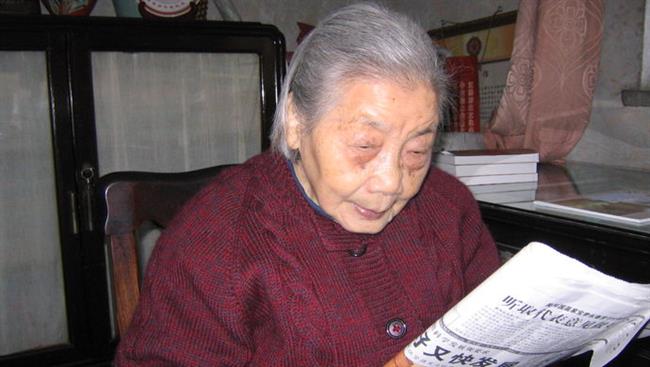Wartime experiences roused writer's patriotism

Luo Hong
Luo Hong, who is called Yao Zizhen by birth, was a Songjiang native born in 1910. She chose the penname Luo Hong after she read Roman Rolland’s fiction and saw paintings by Chinese painter Hong Ye (1886-1932).
After graduating from Suzhou Women’s Normal School in 1929, Luo became a primary school teacher in Songjiang.
After the outbreak of the War of Resistance against Japanese Aggression, she roved around several places and finally returned to Shanghai when China won the war in 1945.
During the war, Luo’s husband Zhu Wen was arrested in 1943 by the Japanese army for fighting against them and imprisoned for about a month. Luo was also arrested and questioned.
Zhu secretly left Songjiang for Tunxi in Anhui Province in 1944. Luo followed and the pair stayed away from Shanghai until China won the war against Japan.
The bitter experience didn’t depress Luo but instead roused her patriotic feelings against foreign invaders. She felt it was her duty to protect the country and wrote stories with tense creative impulse.
She worked as a newspaper editor and a teacher at several schools over the next eight years. Starting from autumn of 1953, she worked for the Shanghai Literature magazine directed by Shanghai Writers’ Association as an editor till her retirement.
As a writer in her early years, Luo was influenced by the Chinese writer Ba Jin (1904-2005) and became his friend after she formally entered the literary world.
“Group Portrait,” a book published in 1982 under the category of war literature in Shanghai, collected short stories written by Luo from 1937 to 1944.
“While writing ‘Group Portrait,’ Luo adopted a first-person male narrative perspective or third-person omniscient perspective, instead of the female perspective in line with her own gender. This showed not that Luo lacked female gender awareness but that she intended to write more about the world with other voices. So she was praised by writer Zhao Jingshen as a real fiction writer,” said Wang Jiren, a Chinese literature professor of Shanghai Normal University.
Luo’s novels include “Way Out,” “Ghost,” “The Era” and “The Past Time.”
In January 2017, Luo was interviewed by Songjiang Distrct TV Station at her home in Shanghai’s Xuhui District.
She struggled to make herself heard: “I started my literary career in my hometown Songjiang … I missed my hometown and would like to go there and have a look …” Luo died on February 27 2017, aged 108.
















